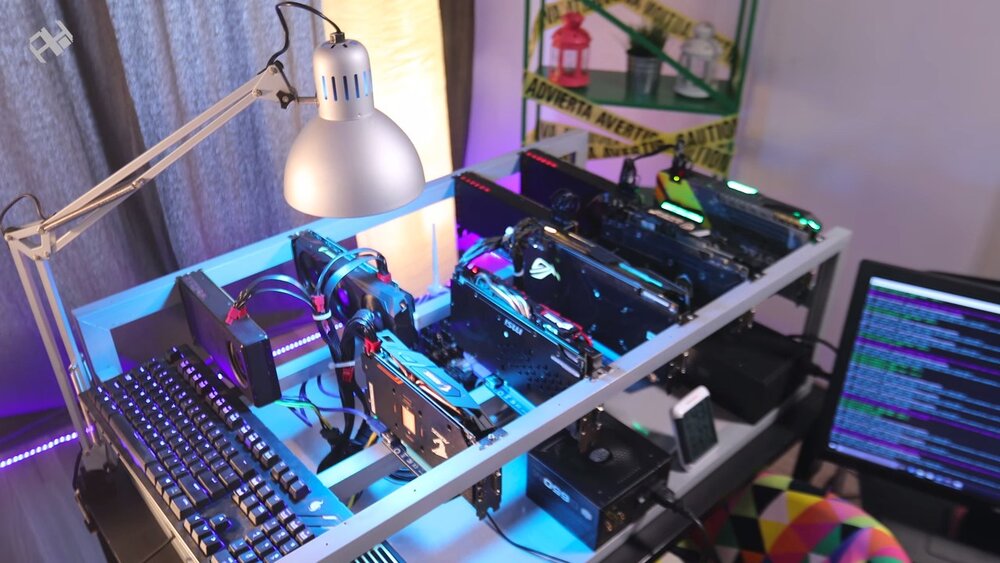Cryptocurrency mining is virtual electricity export: ICT minister

TEHRAN – Talking about recent activities in the field of cryptocurrency mining in Iran in recent months, Information and Communication Technology Minister Mohammad Javad Azari Jahromi told IRNA that mining cryptocurrency is a kind of virtual electricity export.
Generating (experts use the term “mining”) digital or virtual currency (dubbed cryptocurrency) with cheap electricity in Iran has become one of the major problems in big cities in recent weeks.
“Besides, a big part of the electricity network is free in nonpeak hours. It means that without any investment and running electricity network, we can export electricity virtually using cryptocurrency,” he explained.
Mining cryptocurrencies is, in nature, a very energy-consuming process and in many of the advanced countries, the governments impose huge tax fees and certain electricity tariffs for people or companies which are active in this area. In Iran, however, the situation is quite different.
On one hand, the gap between the value of the rial and the U.S. dollar is increasing day by the day and the global demand for trading with cryptocurrencies, especially Bitcoin is increasing drastically and this has made the area even more attractive for companies and people to join in. On the other hand, no regulation or law has been defined for such electricity subscribers.
The government is compiling laws and Iran will probably allocate some places near power stations for this issue, Azari Jahromi said.
Generating power and its transmission to the miners increase the expenses hence the government allocate some places near power stations and the electricity rate is set according to their income, he explained.
Mining cryptocurrency is very popular worldwide, however, the energy price in Iran is very low in comparison to other parts of the world.
Power generation cost, including production and transmission expenses, is very low in Iran due to abundant natural resources, which makes it economical for the country, he added.
“This reasonable price of energy is very attractive in Iran for cryptocurrency miners,” he said, adding, “however, it is not favorable that others mine cryptocurrency using domestically-generated electricity.”
“The Ministry of Energy estimates that about 700 megawatts of eelectricity are consumed for cryptocurrency mining. This violates other people’s right.”
The government should set regulations for their activities and use electricity in nonpeak hours, he said.
Though the import of cryptocurrency mining hardware and special computers is banned in Iran, there are many people active in this field, he lamented.
Many of these computers have already used in state-run and private organizations, he added.
The government should issue licenses for cryptocurrency mining in order to have legal activities in this field, he said.
According to webopedia.com, in order to get started mining, cryptocurrency miners will need dedicated computer hardware with a specialized graphical processing unit (GPU) chip or application-specific integrated circuit (ASIC), sufficient cooling means for the hardware, an always-on internet connection, a legitimate cryptocurrency mining software package, and membership in both an online cryptocurrency exchange as well as an online mining pool.
China not intended for mining cryptocurrency in Iran
The China government does not have any plan for mining cryptocurrency in Iran, however, the Chinese private sector may be active in this field, Azari Jahromi said.
He traveled to Dalian, China, to attend the World Economic Forum’s Annual Meeting of the New Champions (AMNC) on July 1-3.
“Before Iran, China was attractive for cryptocurrency miners, however, it has been shifted to Iran this year.”
According to a recent report by the Bitcoin Mining Network released in June 2019, China still dominates both the mining hardware manufacturing sector and mining itself, despite being in a grey area.
Furthermore, it is estimated that China conducts 60% of global mining, with the Sichuan province alone producing 50% of global hashrate, or computing power of the Bitcoin network.
Chinese miners are major players in the Bitcoin mining industry. Two largest mining pools - BTC.com and AntPool (both owned by Chinese mining hardware giant Bitmain) - hold almost 32% of the Bitcoin network hashrate, which essentially measures how much computing power is needed to maintain the network.
“We do not have any evidence of Chinese activities in Iran, though I have heard about the issue,” Azari Jahromi said.
Trade between Iran and China in the field of ICT amounts to $1.5 billion annually, which makes China one the main trading partners of Iran, he said.
Azari Jahromi called digital economy as one the most important issues which are observed by Iran for international cooperation.
“The neighboring countries and some other countries like China are of high priority for expanding cooperation [with Iran]. This issue was discussed during the meeting with the Chinese minister of industry and information technology Miao Wei.”
Cooperation for establishing an East-West transit route passing from China, Pakistan, and Iran to Europe was also discussed during the meeting, he added.
“We also invited China to attend the 25th edition of Iran International Exhibition of Electronics, Computer & E-commerce (ELECOMP 2019), to be held from July 18 to 21, and the Chinese side welcomed our invitation,” he concluded.
SB/MG
Leave a Comment